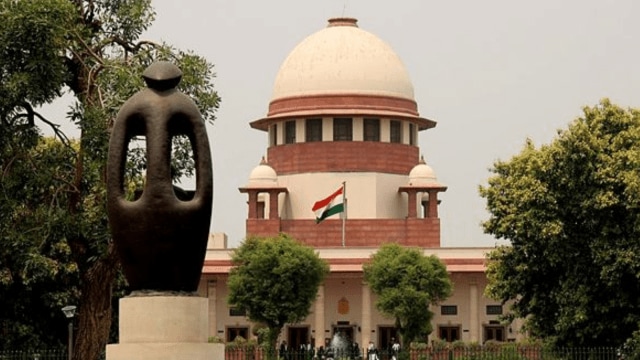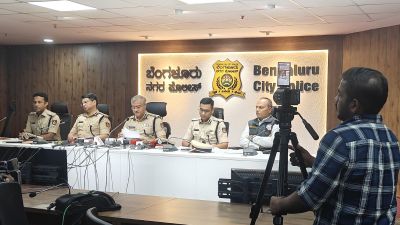The Supreme Court on Wednesday deferred hearing on petitions seeking a review of its July 27, 2022, ruling upholding the constitutional validity of the Prevention of Money Laundering Act (PMLA), 2002, as amended from time to time, including provisions dealing with the powers of the Enforcement Directorate (ED) regarding arrest, search, attachment and seizure in money laundering offences.
A bench of Justices Surya Kant, C T Ravikumar and Ujjal Bhuyan adjourned the matter till August 28 after Solicitor General Tushar Mehta conveyed to the bench that it was “listed suddenly” Tuesday evening and “we need to go through it”. Adjourning it, the bench said it will examine if the petitioners are indeed seeking a review or whether it is an appeal in the guise of a review.

Senior Advocate Kapil Sibal appearing for some of the petitioners submitted, “I will convince your lordships that this judgment is wrong and needs to be fully reviewed.”
Justice Ravikumar said, “There cannot be any doubt that it is a review petition. In a review petition, can you say that the judgment gravely erred? Whether it will partake the character of an appeal?… Let us see if it is an appeal in disguise or a review because once the matter came up before a three-judge bench, it said that two issues (needed reconsideration). Definitely, it is open…”.
Sibal added that “once a review is in open court, we are entitled to persuade Your Lordships” that it needs to be completely reviewed.
Justice Surya Kant said, “We will give ample time to both sides. Won’t be free for all, but we will give ample time.”
In November 2017, a bench of Justices Rohinton Nariman and Sanjay Kishan Kaul, in Nikesh Tarachand Shah vs Union of India, had declared the ‘twin test’ of bail under PMLA as unconstitutional since it was “manifestly arbitrary”.
Story continues below this ad
“We must not forget that Section 45 is a drastic provision which turns on its head the presumption of innocence which is fundamental to a person accused of any offence. Before application of a section which makes drastic inroads into the fundamental right of personal liberty guaranteed by Article 21 of the Constitution of India, we must be doubly sure that such provision furthers a compelling State interest for tackling serious crime,” the bench had said.
“Absent any such compelling State interest, the indiscriminate application of the provisions of Section 45 will certainly violate Article 21 of the Constitution. Provisions akin to Section 45 have only been upheld on the ground that there is a compelling State interest in tackling crimes of an extremely heinous nature,” the bench had further said.
It had also said that stringent bail conditions can be imposed in exceptional circumstances such as anti-terrorism laws but cannot be manifestly arbitrary.
This, however, was overruled on July 27, 2022, by a three-judge bench presided by Justice A M Khanwilkar and comprising Justices Dinesh Maheshwari and C T Ravikumar in the Vijay Madanlal Choudhary vs Union of India case.
Story continues below this ad
The bench held as valid the twin conditions for bail laid down in Section 45 of the Act. The provision says that when the public prosecutor opposes the bail plea of an accused, the court can grant relief only if it is satisfied that there are reasonable grounds to believe that the accused is not guilty of such an offence and is not likely to commit any offence if released on bail.
Ruling on a batch of 242 petitions that raised questions on different provisions of the PMLA, including Section 3 which defines what constitutes money laundering, the Justice Khanwilkar-led bench upheld the PMLA law as amended from time to time including provisions dealing with the powers of the ED regarding arrest, search, attachment and seizure in money laundering offences.
The bench underlined that “the principle of innocence of the accused/offender is regarded as a human right” but “that presumption can be interdicted by a law made by the Parliament/Legislature”.
It also said an Enforcement Case Information Report (ECIR) cannot be equated with a First Information Report (FIR), that supplying an ECIR in every case to the person concerned is not mandatory and “it is enough if ED, at the time of arrest, discloses the grounds of such arrest”.
Story continues below this ad
Taking up a review petition against this in August 2022, another three-judge bench presided by the then Chief Justice of India N V Ramana said that “at least two of the issues” raised in the petition requires reconsideration – the finding that the copy of the ECIR need not be given to the accused; two, reversal of the presumption of innocence.









